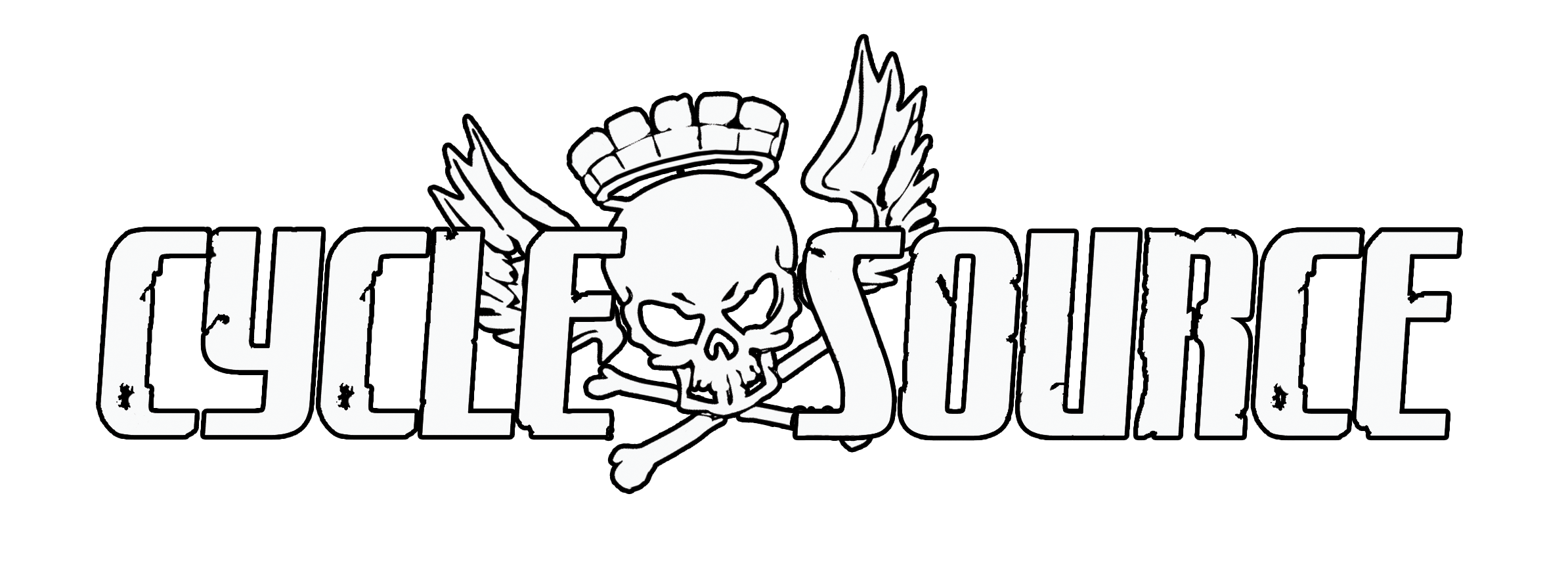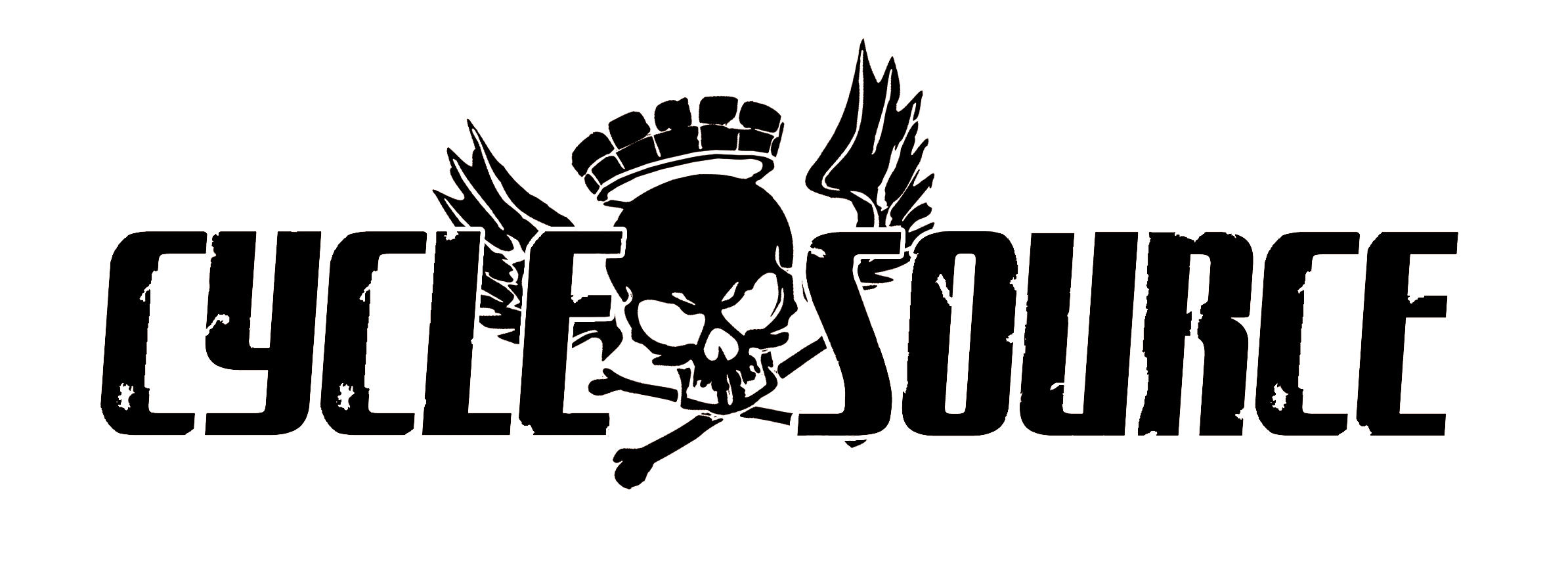Niedwick Machine
Originally Published In the February 2011 Issue Of Cycle Source Magazine
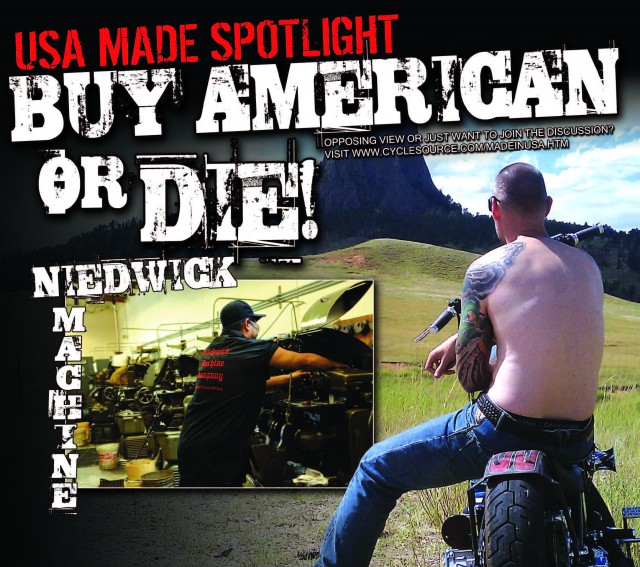
Nichole and I have known Russ Niedwick for a while now. Russ owns and operates Niedwick Machine in Orange, CA. While getting to know Russ and building a bike for him, we naturally started talking shop. Russ’ shop is very capable, and he has his hands in a lot of different operations. One day while looking through a trifold of his, I noticed they offered machine shop services in Asia, meaning they could outsource work if need be. I immediately called him and gave him the, “What the Hell, dude?” He told me to chill, as that was an experiment gone dreadfully wrong. The idea of an American manufacturer going to Asia, and almost immediately returning, made me happy to say the least. As soon as I could, I introduced Russ to Wildman, and they instantly struck up a great relationship. Wildman was impressed with Russ’ story, and as you’ve probably noticed, Niedwick Machine is a proud advertiser with The Source now. This is not a story of a mag pushing its advertiser, but actually how the story brought the mag and the advertiser together. It also is a great testimony that an American manufacturer can survive if it is capable of adaptation and evolution. Enough of my babble, let’s listen to Russ for a while.
CS: Give us the background on Niedwick Machine, how it got started, and how you got where you are now.
RN: Niedwick Machine started in 1956 by my grandpa when all the airplanes were being built in Long Beach. There were screw machine shops all over Orange County and LA, and that’s how grandpa started. You know, he bought a Bridgeport and he just started making parts. We actually have a video on our Web site of his very first machine from 1956, which is kinda cool. And that’s how it got started. You know that’s how they did it back then; guys bought machines and started making parts for the aerospace industry. He did it just like that for about 10 or 15 years, and then my dad went to war and my uncle didn’t. Instead of going to the war, he went to work with grandpa. The shop really got going in the late ‘60s and early ‘70s. They did really well for many, many years. They were pulling in a few hundred thousand dollars each per year in the seventies and eighties, just making widgets for the aerospace industry. In the early eighties, they started making commercial dishwasher parts for the restaurant industry as the aerospace industry started to die out.
Now, as you know, they no longer build any airplanes in Long Beach, they are all built overseas or in Europe. All those mom-and-pop screw shops and machine shops died out as well. We were able to hang in there because we grew enough, and we were big enough and diversified enough to pick up additional business. The commercial dishwasher business has been our staple over the last 15 years. My dad got involved in the mid nineties, after being a computer programmer for years. He started his own shop, and a few years later they merged the two shops together. Slowly they were still diversifying, but they were still old school, you know, they were still making widgets. Not finished products, just nuts and screw and doohickeys. I’ve always been a motorhead, you know, I’ve always been working on cars and motorcycles, and I got involved in 2005. I was a stock broker for years and years, and I took a year off to finish my Master’s Degree, and started building a motorcycle in my garage. I hadn’t spent much time in the shop my entire life. In 2004, I was spending a lot of time there building parts for my first bike. As I was hanging out there, I was driving around going to a lot of different bike shops, and I happened to meet Jesse James. He had seen some of the stuff I had made, knew we had a shop, and asked me to make some parts for him. So I went back to the shop and made some parts. The next week, I met somebody at a medical device company on a whim, and they also asked me to make some parts. Six months later I’ve brought in all these new accounts, and I told everybody at the shop, ‘Hey, put me on the payroll.’
It was never my intention, but I found that I was really good at generating leads and business, and I found myself on the payroll at the end of ’05. I learned the business really quick. What I was able to do was bring in a whole new aspect of work. I brought in the hot rod industry, the off-road truck stuff, the motorcycle stuff, and we really saw our business start to develop over the next few years. We were doing the same amount of widgets, but we were also doing all this new stuff. We carried on like this for about two years, and then unfortunately my uncle passed away in 2007. At that point, it was up to my cousin and I to step up and run the show. So we moved into the big office and have been running it ever since. We have seen more of this new business and less and less of the widgets, primarily because the widget business has been moved overseas. But we’ve continued to grow because we’ve added the motorcycle business and the military. The military will be our largest contract this year. We are doing less of the high volume simple parts; our business has become more of the high end, complicated parts and prototyping. If we do the military, number one, there stuff cannot be done overseas. And for the motorcycle guys, they do not need 10,000 parts, they need 200. It does not serve for them to go overseas. They’ll never sell enough parts. You need to be able to quickly change designs and get new parts out there. We’ve really created a niche where we do rapid prototyping and follow it up with production runs.
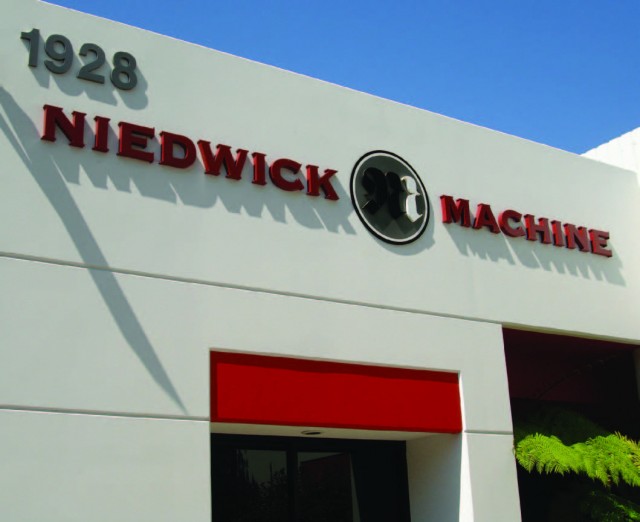
CS: So you’ve become the go-to guy for the gearheads. Do you think the fact that you are not just button pushers has helped you stay alive?
RN: We definitely do not make a lot of money on the one-offs or the prototyping. It creates exposure. One of these days it will lead to big accounts. The last few months we’ve had numerous parts on the covers of countless magazines on high profile builders, but we don’t get the recognition. It’s always done through a wheel company or a brake company, but those companies know to come to us and say, ‘Hey, we need this part by tomorrow.’ People know to come to us to get stuff done quickly and to get it done right. That’s not a money maker, but you have to do it to present tomorrow’s opportunities.
CS: So tell us about your overseas operations and what led you to ceasing those projects.
RN: Our overseas operation developed a few years ago. Basically, the customer we handle, the largest one, was getting pressure from their competitor. Their competitor was going overseas. So they pressured us to be competitive on this particular machine. There’s only so many ways to cut costs. They were such a big part of our business and vice versa; we own all of their research and development, all of their fixturing, everything for the last 25 years. If we shut down, they shut down. We probably make 500 line items for them on a monthly basis. There was a lot of pressure just because of our history together. So at the end of the day, we decided to look into producing some of the simple parts overseas. We did that. We brought some stuff in from overseas, but the large quantities, and the crazy lead times sucked, and when we got the parts, we basically had to go back and fix all of them. You have no recourse as far as returning the parts. It was more effort and work than the savings warranted. At this point, we were getting tremendous pressure from overseas. So we decided to send some of our largest assemblies there. We worked on that for about a year and a half. We got these assemblies in and we had about a 50% quality check on those parts. The parts were just too complicated for the overseas factory to figure out. At the end of the day, it was irrelevant. It was too much effort. The parts were junk. They used the wrong material. So we made the decision that our parts are made here, and we will ask for price increases from our customer, and if they cannot pay it, we cannot do the work. That was a tough thing to do. But we had to continue making parts overseas and put up with the headaches, or lose money making the parts here, or diversify and find new sectors that need our services. So we did what we had to do, and brought it back home.
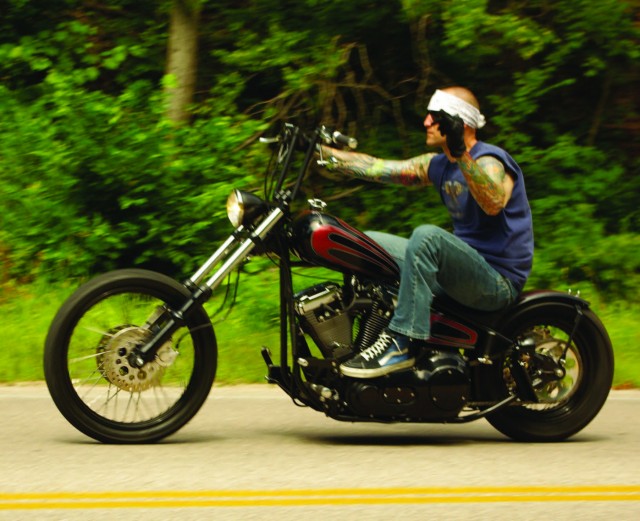
CS: Do you think that is one of the problems with American jobs going overseas, that too many people are scared to say no, that they will do whatever it takes to make the customer and ultimately the consumer happy?
RN: Absolutely. It’s impossible to say no for so many people, and especially hard when you’ve had such a longstanding relationship with somebody.
CS: Did it feel like a huge monkey off your back when you finally told them no?
RN: Definitely. And we are still working with them on things we can do domestically to keep them and us profitable. They are looking into things they can do in Asia, but we will not be a part of it. We’ve told them that when they get their parts in from overseas and they need 1,000 of them corrected overnight, we will do that, but we are going to make money at it.
CS: Do you have any stories relative to the motorcycle industry that exemplify the current attitude and shady business ethics outsourcers have?
RN: Yes. One of the largest aftermarket parts companies out there started getting parts from us. We still have a large screw machine operation, and they needed screw parts; a lot of them. They were doing it on CNC machines, which isn’t productive. We started running all their screw products. They were very busy at the time, and they came to us with some of their more complicated CNC mill work, and we took that on. We did a great job at it. We were given large blanket job orders on two or three line items. We did prototypes, we started production, and about a month into it, they had taken our prototypes and sent them overseas and we lost the contract. They came to us and told us to compete at the overseas price. We couldn’t buy the material for the finished product price, so the contract was lost. Not only did we tool up, do R&D, and start production, but they took our parts and used them against us. And that sucks. I probably have $20,000 in tooling and fixtures lying here, and they went somewhere else to save a buck. They have no appreciation for what we did. Sure as shit, three months after their parts were sourced overseas, they call me and say, ‘We need you to run these parts again; the parts coming in from Asia are junk.’ And I said, ‘No.’ They came back to us because the stuff they got from overseas was shit. We did a huge project for a medical device company. It was a big medical cart. It took us four months to make six prototypes. They were exactly what they wanted. The samples were approved. They boxed the samples up and shipped them to India and used our samples for the Indians to make the parts. They never called us to tell us; I found out through a friend that works there. We even ordered a custom powdercoat for the project. I threw out 475 of the 500 pounds I bought because we would never use it on anything else. I thought about throwing it on their door step, but I thought they would use it, so I just pitched it.
CS: Where do you think the US is heading with respect to outsourcing of manufacturing jobs?
RN: To think that overseas manufacturing is not a threat is a mistake; it is. It’s a force to be reckoned with. At this point, the lead times are very lengthy, the minimum quantities are high, and right now, the material cost is almost identical to ours. But overseas material specs are shit. When you order 303 stainless, you don’t get 303. The mil specs are not what they are here. People are starting to realize that. But something we cannot control is labor. If you pay your employees in bowls of rice, and you have no workers’ comp, and no social security, we are unable to compete. If people are willing to accept parts for their bike that are made by twelve-year-old girls, then so be it. But to think that manufacturing is never going to be ruled overseas or that we are going to become an industrial nation again is way off. We are not. I recently read an article that said if we had a war on our soil, we would be in trouble because we cannot produce the brass for shell casings quick enough to keep up with demand.
CS: And now our government is destroying spent shell casings instead of allowing the aftermarket to reload the casings.
RN: We all shoot and I am a hunter. We’ve been reloading for years. We reload our own stuff. It’s sad that our nation has become an intellectual nation instead of a working nation.
CS: I think that’s why your story is great though. You guys are the thinkers and the doers. You can take a part from a vague idea to a completed, packaged product. When a company asks you to compete with the overseas’ price, can the overseas’ part compete with your quality? Or lead time?
RN: At the end of the day, the average person doesn’t look at the quality or the package to see where it was made. They only look at the price tag.
CS: That’s the problem! People only want more for less!
RN: I think people are coming around. I think they are realizing our government is not looking out for our best interests. I think that showed in the elections in November. I don’t know how long it takes for that to trickle down to where I buy my motorcycle parts, but it’s a start. You gotta start somewhere.
CS: Do you have any final opinions about outsourcing, and give us your honest opinion of the vendors that are nothing more than a middleman between Asia and the unaware American consumer.
RN: I think it’s bullshit. And they are taking jobs away from us. They are taking work away from me. And they are making it impossible for us to run a business and make jobs and make money. And I hate it. It sucks. We have to compete with it every day. It gets harder and harder and harder. And I wish people would realize what they are doing. When people go and buy a motorcycle part that is made in China, you gotta think about the repercussions of what you’re doing. People are affecting their own lifestyle and they don’t know it.
CS: There is something to be said about having nice stuff, though. I’ll skimp on buying clothes and furniture so I can buy high quality tools and high quality motorcycle parts, instead of having shitty tools and shitty parts. I think Americans fail to prioritize.
RN: We are inundated with now, now, now; borrow money to get whatever you want. It’s this mindset that you have to have everything. Our government is the worst offender. It’s in the most debt it’s ever been.
CS: How does your grandpa feel about jobs and work going overseas?
RN: He’s driven a Ford his whole life. He saw his friends’ shops disappear when the airplane industry migrated from Long Beach. Long Beach used to be a major, major manufacturing city, and they don’t manufacture shit anymore. All they do is unload boats from overseas now. How ironic is that? My grandfather is a stubborn old man; he’d rather lose money on a job than send it overseas. He’d do it out of his own pocket rather than have someone else do it, especially someone overseas.
CS: That’s how it should be. I think it’s no joke what Asia is trying to do to us.
RN: Absolutely. Gramps was of the mindset that he’d figure out how to do anything, and he’d make a buck at it. He’ll be damned if he’ll give it to someone else.
CS: Well that’s a great story. Is there anything else you’d like to add?
RN: Yeah, hurry up and get my bike done.
